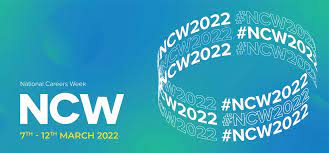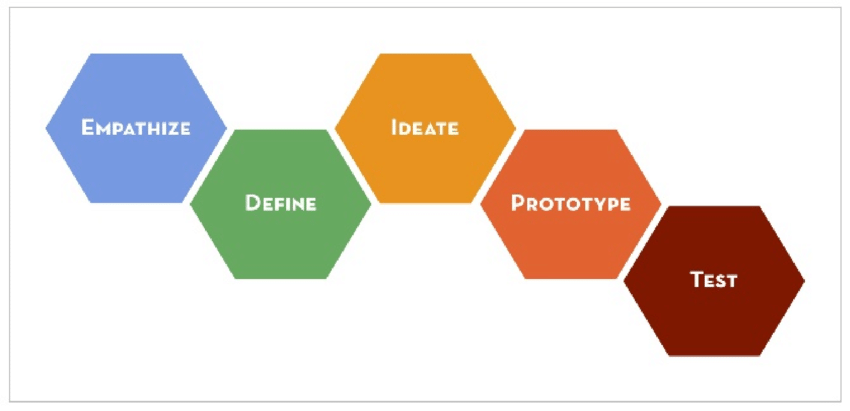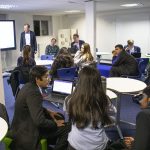Year 7 One Day Filmmaking Challenge
Our Year 7 students took part in an action-packed filmmaking workshop hosted by the One Day Film School. The morning...

The Careers Department offers students outstanding support, not only in their decision-making process but also in personal development, ensuring they have the requisite skills to succeed in the globally connected world of work.
As part of National Careers Week 2022 we’re highlighting two pioneering new schemes which the Department launched earlier this year. Both support students in developing the key skills and personal attributes which will be vital to success in their future careers.
Design Thinking
The ‘Design Thinking’ model developed at Stanford University, the scheme helps inculcate the skills the students need for the 21 century. Students are taught about this methodology for creative problem solving and have the opportunity to apply it to real world problems by taking part in analytical and problem-solving activities.
“Our Y9 students took part in a series of workshops earlier this year which helped them to understand how design thinking can help when approaching big problems, such as climate change. These sessions have proven so popular and impactful, that they are now being embedded into the Y9 Global Goals curriculum,” said Mr Couch, Head of Careers.

When it comes to supporting students with that perennial question of what they want to do when they leave School or University, the team drew inspiration from the most popular course delivered at Stanford University, The Design Your Life elective, which helps students to figure out what they want to do for a future career.
They adapted the Stanford course to the needs and mindset of our Y12 students. The ‘Design Your Future’ course uses creative approaches to personal reflection allied with positive psychology. This methodology encourages students to lean into their curiosity and explore their options; to navigate and problem-solve their decisions with greater clarity and purpose. “I felt that there was so much in Stanford’s course that would benefit our Sixth Formers,” said Mr Couch. “I designed the course to helps our students figure out what they want to do next, post-Latymer, and the steps they take to achieve that.”
“Preparing students for the world beyond the School gates is an important part of the education we offer here” said Mr Couch. “As Google’s CEO, Sundar Pichai, has said, AI is going to have a bigger impact on the world than some of the most ubiquitous innovations in history. We therefore need to prepare our students with the skills they need to navigate an every changing work environment dominated by machine learning and automation.”
“There will always be a need for the familiar skill sets in the workplace such as communication and teamwork, however, with tasks being automated and analytical processes being outsourced to machines, people will need to understand the importance of empathy and generating creative approaches to problem solving because this cannot be done by AI or machines,” Mr Couch concludes.
Preparing for Interview
The second scheme helps students to prepare for future interviews. AI is not only changing how we work it is also having an impact on how we succeed in finding work in the first place. Recognising this, the Careers Department has introduced a second scheme to support students. Shortlist.me helps students practise their interview technique for an AI operated interview process.

“We’ve brought this into the school because many of today’s employers interviews are conducted online whereby the applicant has to answer recorded questions in a limited time before progressing onto the next stage,” said Mr Couch. “As AI is used to monitor speed of speech, filler and key words, the importance of practising this format is crucial to success.”
Students’ feedback so far has illustrated the benefits of this new approach. One student told us: “I didn’t realise the physical aspects of how I speak as I only ever heard myself speak. I realised that I tend to look up to the right which can look quite “flight-y” or nervous in retrospect so I will try to remain more stable and conscious of where I’m looking from now on. I think there is also an element of speaking to a real person that helps me pay more attention usually.”
Many found watching themselves back extremely helpful: “It was an extremely useful experience as I got too see how I act whilst practising my interview skills. Additionally, I have learned to not say “um” so much as I didn’t realise how many times I would repeat saying it in one sentence!”
Whilst others also found it helpful thinking about how best to communicate about themselves: “I thought the interview practice was really useful. The questions felt realistic and I liked that you could watch yourself back and review your answer. I thought it was also helpful that they gave you tips prior to the start of the exercise. I think it helped me to realise that keeping your answers broad but using refined and relevant details were a useful way of communicating with the interviewer.”
All of them seemed to find it an enjoyable experience, for example one student told us: “Finding precise and clear examples of applicable situations is very important. Having a clear idea of who you want to present yourself as is also vital. It is also quite fun!”
Our Year 7 students took part in an action-packed filmmaking workshop hosted by the One Day Film School. The morning...
We are delighted to announce that Claudia, from Year 13, has been awarded the Ron Cooke Award from the...
Our Lower Sixth geographers had a brilliant few days away developing their fieldwork skills in Glastonbury. Students spent the...